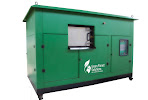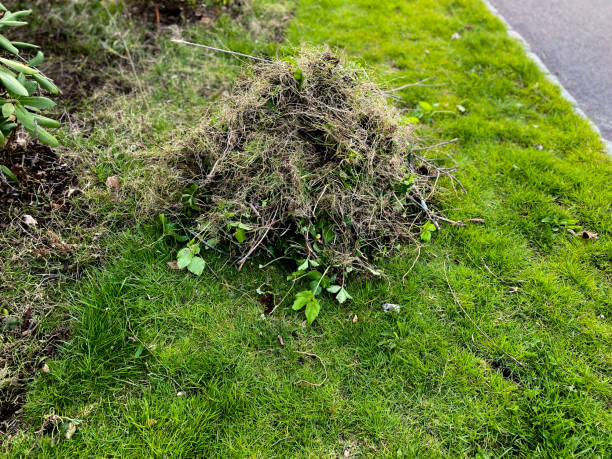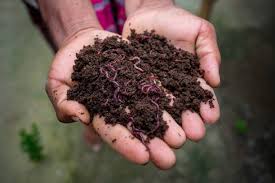Composting Machine Supplier Pune | Green Planet Solutions
Composting Machine Supplier Pune: Trusted Organic Waste Management Partner
If you are searching for a reliable composting machine supplier Pune, your business is already taking the right step toward sustainable and cost-effective waste management.
Green Planet Solutions Pune is a leading supplier of advanced composting machines designed to help residential societies, hotels, restaurants, malls, hospitals, and industries manage organic waste efficiently while staying compliant with government norms.
👉 Get a FREE Site Evaluation & Composting Recommendation:
https://share.hsforms.com/1d12AT_oJScm8iiXbjSrEIwrh2r7
Why Pune Needs Professional Composting Machine Suppliers
With PMC and PCMC enforcing strict Solid Waste Management Rules, organizations in Pune must treat wet waste at source. Partnering with an experienced composting machine supplier Pune ensures:
- Avoidance of municipal penalties
- Reduction in waste transportation costs
- Odor-free and hygienic waste processing
- Long-term savings and faster ROI
Who Should Buy Composting Machines in Pune?
- 🏢 Housing Societies & Townships
- 🏨 Hotels, Resorts & Banquet Halls
- 🍽 Restaurants, Cafes & Food Courts
- 🛍 Shopping Malls & Commercial Buildings
- 🏥 Hospitals & Educational Institutions
- 🏭 Industries & Manufacturing Units
As a trusted composting machine supplier Pune, we provide customized solutions based on daily wet waste generation and site constraints.
Why Green Planet Solutions Is the Best Composting Machine Supplier in Pune
✔ Local Expertise & Fast Support
Being based in Pune, we offer quick site visits, faster installations, and prompt after-sales service.
✔ Government-Compliant Machines
All composting machines comply with Solid Waste Management Rules 2016 and latest municipal guidelines.
✔ Wide Capacity Range
From 50 kg/day to 5000+ kg/day, we supply machines suitable for small societies to large industrial setups.
✔ Odor-Free & Low Maintenance Technology
Advanced aeration and microbial systems ensure clean, safe, and odor-free composting.
Types of Composting Machines We Supply in Pune
- Automatic Organic Waste Composting Machines
- Semi-Automatic Composting Systems
- In-Vessel Composting Machines
- Industrial Composting Plants

Composting Machine Price, Capacity & ROI in Pune
| Capacity | Ideal Use | ROI Period |
|---|---|---|
| 100–250 kg/day | Housing Societies, Restaurants | 12–18 Months |
| 500–1000 kg/day | Hotels, Malls | 8–14 Months |
| 2000+ kg/day | Industries | 6–12 Months |
Choosing the right composting machine supplier Pune ensures maximum efficiency and faster returns.
👉 Get Price & Capacity Details for Your Property:
https://share.hsforms.com/1d12AT_oJScm8iiXbjSrEIwrh2r7
Problems We Solve for Pune Properties
- Overflowing wet waste bins
- Bad odor & pest issues
- High waste disposal charges
- Municipal compliance challenges
- Lack of trained manpower
As an experienced composting machine supplier Pune, we provide end-to-end solutions—from supply to training and maintenance.
Strategic Call to Action: Start Composting Today
Hundreds of Pune organizations trust Green Planet Solutions Pune for reliable composting solutions.
👉 Book a FREE Site Visit in Pune:
https://share.hsforms.com/1d12AT_oJScm8iiXbjSrEIwrh2r7
Why Act Now?
- PMC inspections increasing
- Rising waste handling charges
- Mandatory on-site composting for bulk generators
👉 Talk to Pune’s Composting Experts Now:
https://share.hsforms.com/1d12AT_oJScm8iiXbjSrEIwrh2r7
Connect with Green Planet Solutions Pune
🌐 Website: www.thegreenplanetsolutions.com
📱 Follow us on all major social media platforms for live installations, case studies & composting tips.
SEO Keywords
composting machine supplier Pune, composting machine Pune, organic waste composting Pune, composting machine for societies Pune, composting machine for hotels Pune
Hashtags
#CompostingMachineSupplierPune #CompostingMachinePune #GreenPlanetSolutions #OrganicWasteManagement #PuneSocieties #SwachhPune #WasteToWealth





